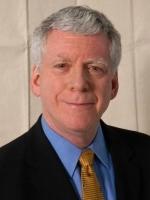These questions are among the most frequently asked about RO.
Jerry Harvey has argued persuasively that RO is anaclitically threatening to many who write and publish about management. It pulls out from under those writers' and publishers' ideas they lean on to make sense of the workplace, ideas like the need for democratic decision making in the workplace or that we are all equally gifted. (I would add that the notion of holding someone to account or of deselecting a subordinate is anaclitically threatening to managers who lean on being well liked.)
Harald Solaas has also noted that RO is consistently misunderstood. Those who learn about RO assimilate what they read and hear to their current conceptual frameworks, and this distorts the intended message.
In a recent letter to the Board of the GO Society, Decio Fabio added an additional point to Jerry’s and Harald’s insights:
“My observation is that when we try to prove others are wrong, narrow minded, old fashioned, etc. they immediately fight against us even before they understand what we are saying. We need to acknowledge the fact that Jaques’s ideas aren’t so easy to grasp at first glimpse, they look (at surface) old fashioned military hierarchy and they need practice to comprehend.”
I draw two points from Fabio’s letter.
- RO consultants can be arrogant in our sureness about the model. (I know I have been and I hear it in others as well.) We deny our clients’ realities. We insist that they see the world of work as we have come to see it without making the effort to see it as they do. We deny the possibility that they may have a point. Treating those who challenge our advice as though they are resistant, cowardly or just not that bright does not win friends or influence prospective clients.
- We have not learned to adapt our models to the realities of our clients. The standard implementation procedures require a CEO who is a) a stratum more capable than their role demands and b) willing and able to overcome whatever cultural resistances the organization has to notions of accountability and stratified, constitutional capability. We need to learn to fit our solutions and our implementation approaches to our clients' situations. When the market regularly rejects the product you are selling, you can only blame the market for so long.
I would add one more point, one that not all of my colleagues may agree with me about: I believe we have learned too much from our successes and not enough from our failures. In “Why RO theory is so difficult to understand”, Harald Solaas made the following observation:
I am sure we have all lived the situation in which “critics” contend that these predictions [made by RO] are mistaken because their own experience contradicts them, blind to the fact that their data come from observation done under non-requisite conditions. (His italics.)
I believe we make a similar error, that too much of our own learning about human nature in the workplace comes from our experience in workplaces where capability, culture, personalities and other factors make it possible to successfully apply standard approaches to RO and its implementation. As far as I am aware, we lack understandings and approaches that are general enough to be relevant to a broader array of organizations. Until we broaden our horizons and our methodologies, we will continue to appeal to a small market, sales and implementation will continue to be difficult, and RO is unlikely to move into the main stream of management.





